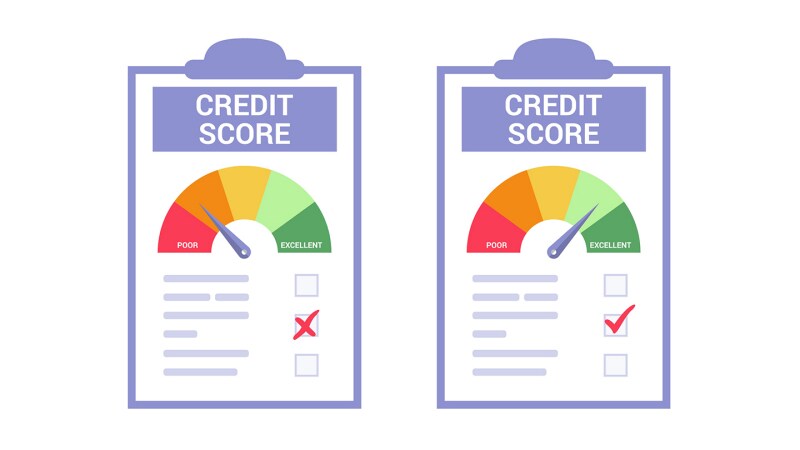620 credit score: A guide to credit scores

Highlights
- A 620 credit score is considered to be in the “fair” credit score range.
- You may face some financial limitations when you have a 620 credit score, such as not being able to access approvals for credit cards and lower interest rates.
- You can improve your 620 credit score to receive better financial opportunities and help improve your financial health.
You check your credit score and see it is at 620. What does this number mean, and could it be what’s holding you back from your full financial potential? Remember that you can view your score on Chase Credit Journey®, a free online toll in which anyone can enroll, whether you are or not a Chase cardmember.
Understanding your 620 credit score
A 620 credit score is considered fair for both the VantageScore® and FICO® scoring models, just one tier away from being in the “good” credit score category. If you have a 620 credit score, it could mean you’ve faced some credit issues in your past, have a limited credit history—or both. Let’s explore what this score means, what type of opportunities typically accompany it and how you can improve it.
Borrowing opportunities with a 620 credit score
While a 620 credit score may limit some borrowing options, such as landing lower annual percentage rates (APRs), individuals can still explore the following opportunities:
- Secured credit cards: Secured credit cards require a security deposit and can help individuals build credit by making timely payments. Note that Chase does not offer secured credit cards.
- Subprime loans: Some lenders specialize in offering loans to individuals with lower credit scores, although interest rates may be higher.
- Federal Housing Administration (FHA) loans: If you’re looking to buy a home, the FHA offers mortgage loans with fewer credit requirements, making homeownership more accessible.
- Credit unions: Some credit unions may have more flexible lending criteria and may offer loans to members with lower credit scores.
Limitations with a 620 credit score
While a 620 score is not considered poor, your lending options are limited. You may struggle with the following:
- Approval for loans: Your credit score could indicate to lenders that you’re a potential risk, so you may face some hardships when getting approved for mortgages, auto loans and more. However, there are plenty of ways to improve your financial health.
- Higher interest rates: You may still be able to be approved for credit cards with a 620 credit score, but those cards may come with higher interest rates.
- Fewer credit card options: If you’re eyeing up a credit card that comes with more premium rewards and perks to your liking, you’ll probably need to improve your credit score from the fair category.
- Potential issues with renting: Landlords may run a credit check as part of an application process to rent a home. If your credit score is low, you may have a harder time finding a place that will approve your application.
Co-signers and authorized users
If you’re struggling to get approved for loans, for example, you may want to consider finding a co-signer. A co-signer is an individual who agrees to take responsibility for payments if you are unable to meet them. A co-signer may be a helpful option if you want to be able to have extra support in getting approved for loans. Note that co-signers are financially on the hook if payments are not made on time.
Moreover, if you are not eligible for a credit card of your liking, you could consider becoming an authorized user on a primary cardholder’s credit card account. However, you will have to find somebody, such as a friend or relative, who is willing to add you as an authorized user. Typically, you and the primary cardholder agree in advance whether you may use the credit card or will simply be listed as an authorized user.
If the primary cardholder has a record of on-time payments and you’re listed as an authorized user, it could potentially help improve your credit score. Note that the primary cardholder holds the final responsibility for paying off the account balance and is the only one enabled to make account changes.
While these options can help you tap into more financial options, improving a 620 credit score can help you open more doors and aid in your financial wellness.
Help improve your 620 credit score
As you can see, a 620 credit score can make some aspects of financial life more limiting. Individuals can help improve their 620 credit score by implementing several strategies:
Making on-time payments
Consistently paying bills and debts on time can be essential to improving your score. Payment history is a heavily considered factor when generating credit scores. Taking steps to build up your payment history can have a strong impact on your credit score.
Reducing credit card balances
Lowering credit card balances can help you improve credit utilization, which is a significant factor used to calculate your credit score. Monitoring your credit utilization ratio can be essential to improving your score. This ratio is the amount of credit you use against your total available credit limit (for example, all your credit card limits combined). Ideally you want to keep this ratio at about 30% or lower. To do this, you may need to set up a budget to keep monthly spending in check.
Building a positive credit history
What could be hindering your credit score is your credit history. Having a limited credit history can hold you back from achieving a higher credit score. Establishing a track record of responsible credit management, such as maintaining a mix of credit accounts and keeping them open for a longer duration, can positively impact credit scores. Managing your existing debt is another way to help build a more positive credit history.
Monitoring your credit reports
Reviewing credit reports regularly and disputing any inaccuracies can help ensure that credit scores are based on correct information. Monitoring your credit is also an excellent way to look out for suspicious financial activity. Fraud and identity theft can pose a threat to your credit score, so taking proactive steps to help protect your credit may help you avoid hurting your score. One way you can do this is by enrolling in identity and credit monitoring alerts through Credit Journey®, where you will be notified if it is seen that your data is exposed in a security breach, for example.
Creating and sticking to a budget
While this isn’t always easy to do, developing a realistic budget can help make the process a little less overwhelming while also prioritizing payment history. Take stock of what you spend each month and do your best to find opportunities where you can scale back your spending.
Use the score improvement tool provided by Credit Journey
When you enroll in Credit Journey, you can use the credit score improvement tool, where you set up an action plan provided by Experian™ and track your progress. This action plan comes with personalized steps based on your financial situation. Taking these steps today can help you start improving your score over time. Some of these steps may include, but are not limited to:
- Paying off debts
- Lowering credit utilization ratio
- Diversifying your credit mix
Bottom line
If you have a 620 credit score and you want to improve it, know that you have time, strategies and tools on your side. You may feel limited by your score now, but with responsible credit management, you can make changes that have a lasting impact on your overall financial wellness.



